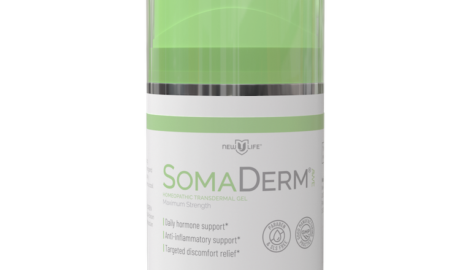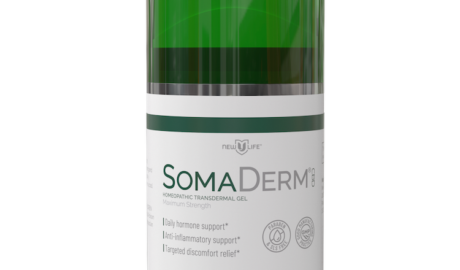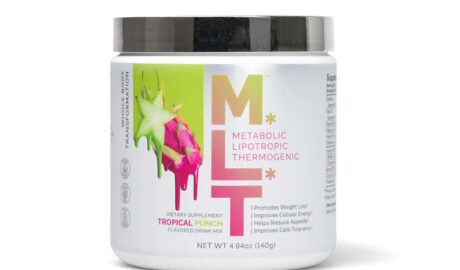This March, we’re celebrating the wisdom of womanhood with the 4th year of Menstrual March — our annual month-long campaign dedicated to education, empowerment and holistic support. Our goal is to celebrate being a woman and shed light on the topics that matter most.
As always, we wanted to hear real, raw stories from the incredible JSHealth community so we could support you during this time. Speaking to you and hearing your personal reflections has been so incredibly powerful and has reinforced why we do what we do!
Did you know that perimenopause can last up to 6 years? With over 34 symptoms and countless experiences no two journeys are the same. Many of you shared with us your symptoms of sleep disturbances, fatigue, weight gain, brain fog and anxiety amongst many others. Many of these symptoms were often mistaken for another health condition.
Most importantly, our survey showed that 90% of women felt inadequately prepared for the symptoms of perimenopause.
We’re here to change that. Below we’ve put together a list of my favourite nutrients to add into your meals to support your body and overall hormonal harmony throughout this transition.
I know in my heart that every woman deserves to feel seen, heard and supported. Remember to reach out and work with your trusted health professional or speak to friends and family about what you’re navigating — you don’t have to travel this part of your journey alone.
Jess x
Supporting Yourself with Nutrition
Nurturing your hormone health during all phases of life requires adequate calorie intake for sustained energy, strength and recovery. Step away from the diet culture and restriction mindset, and nourish your body with the fuel that it needs to function at its best.
I love to embrace a colourful, wholefood diet with plenty of variety. When navigating perimenopause or menopause, I’d try adding these nutrients in:
- Magnesium: Known as the ‘relaxation mineral,’ magnesium supports nervous system function, reduces stress, improves sleep quality and helps with muscle relaxation (1). It really is a magic mineral! It’s also essential for energy production, which can help combat the fatigue experienced during perimenopause and menopause (2).
Food sources: Dark leafy greens, nuts, seeds, whole grains and dark chocolate, or quality supplements.
Try my Avocado Cacao Mousse - Phytoestrogens: These plant-based compounds mimic estrogen in the body, helping to balance hormonal fluctuations and may alleviate uncomfortable symptoms like hot flashes and night sweats (3).
Food sources: Flaxseeds, soy, legumes, sesame seeds and chickpeas.
Try my Blueberry & Flaxseed Protein Porridge - B Vitamins: These are essential for energy production, cognitive function and nervous system support. They also play a role in mood balance, which may help to reduce anxiety and brain fog, symptoms commonly experienced during menopause (4).
Food sources: Eggs, poultry, fish, leafy greens, whole grains and legumes.
Try my Folate-Rich Nourish Bowl - Vitamin D & Calcium: As estrogen declines, bone density can decrease, increasing the risk of osteoporosis. Vitamin D enhances calcium absorption, making it crucial for maintaining strong bones and reducing fracture risk. It’s essential to also prioritise strength training during this time! (5)
Food sources: Fatty fish, egg yolks, dairy, fortified plant milks and leafy greens. - Omega-3 Fatty Acids: These essential fats support brain health, combat inflammation and promote heart health (6). I love Omega-3s for mood stability, cognitive function and skin health — a wonderful all-rounder for wellbeing.
Food sources: Oily fish (salmon, sardines), walnuts, flaxseeds and chia seeds.
Try my Salmon, Beetroot & Brown Rice Salad - Adaptogens: These powerful herbs affect the neuroendocrine system. They may help regulate cortisol levels plus reduce stress and fatigue that may be experienced during this time.(7) Adaptogens also support adrenal function, which is important as the body transitions through a range of different hormonal fluctuations.
Food sources: Found in herbal teas or targeted supplements. I personally love Ashwagandha and Rhodiola! - Prebiotics & Probiotics: A healthy gut microbiome is crucial during perimenopause and menopause, as hormonal shifts can lead to symptoms like bloating and digestive discomfort (8).
Food sources: Yoghurt, kefir, sauerkraut, kimchi, fibre-rich foods like oats and legumes. You can also look to include a targeted probiotic supplement. I always recommend one with at least 35 Billion CFU and multiple strains!
References
- National Institutes of Health (NIH), Office of Dietary Supplements (ODS), Magnesium: Fact Sheet for Health Professionals. Available at: https://ods.od.nih.gov/factsheets/Magnesium-HealthProfessional/
- Brighten, J. Magnesium for Menopause: How This Mighty Mineral Can Help. Available at: https://drbrighten.com/magnesium-for-menopause/
- Chen, M.N., Lin, C.C. and Liu, C.F., 2015. Efficacy of phytoestrogens for menopausal symptoms: A meta-analysis and systematic review. Climacteric, 18(2), pp.260–269. Available at: https://doi.org/10.3109/13697137.2014.966241.
- Di Daniele, N., Carbonelli, M.G., Candeloro, N., Iacopino, L., De Lorenzo, A. and Andreoli, A., 2004. Effect of supplementation of calcium and vitamin D on bone mineral density and bone mineral content in peri- and post-menopausal women: A double-blind, randomized, controlled trial. Pharmacological Research, 50(6), pp.637–641. Available at: https://doi.org/10.1016/j.phrs.2004.05.010.
- Dighriri, I.M., Alsubaie, A.M., Hakami, F.M., Hamithi, D.M., Alshekh, M.M., Khobrani, F.A., Dalak, F.E., Hakami, A.A., Alsueaadi, E.H., Alsaawi, L.S., Alshammari, S.F., Alqahtani, A.S., Alawi, I.A., Aljuaid, A.A. and Tawhari, M.Q., 2022. Effects of Omega-3 Polyunsaturated Fatty Acids on Brain Functions: A Systematic Review. Cureus, 14(10), p.e30091. Available at: https://doi.org/10.7759/cureus.30091.
- Liao, L.Y., He, Y.F., Li, L., Meng, H., Dong, Y.M., Yi, F. and Xiao, P.G., 2018. A preliminary review of studies on adaptogens: Comparison of their bioactivity in TCM with that of ginseng-like herbs used worldwide. Chinese Medicine, 13, p.57. Available at: https://doi.org/10.1186/s13020-018-0214-9.
- Becker, S.L. and Manson, J.E., 2020. Menopause, the gut microbiome, and weight gain: Correlation or causation? Menopause, 28(3), pp.327–331. Available at: https://doi.org/10.1097/GME.0000000000001702.






